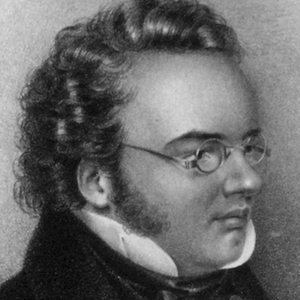


Such questions are very difficult to answer. I am asked whether I approve of this classification. Rubenstein has, perhaps, gone farther than any one, not only in including Schubert in the list of those he considers the five greatest composers – Bach, Beethoven, Schubert, Chopin, Glinka – but in exclaiming, “Once more, a thousand times more, Bach, Beethoven and Schubert are the highest summits in music” (Die Musik und Ihre Meister, p.

He was young, modest, and unknown, and musicians did not hesitate to slight a symphony which they would have felt bound to study, had it borne the name of Beethoven or Mozart.īut his fame has grown steadily from year to year, and will grow greater still in the next century. These things seem strange to us, but they are historic facts, and help to explain why Schubert, with all his melody and spontaneity, made his way so slowly to popular appreciation. In Vienna, too, it was taken up again in the following year, but only two movements were given, and these were separated by a Donizetti aria! Three years later Habeneck attempted to produce this symphony in Paris, but the band rebelled over the first movement, and the same result followed in London, two years later still, when Mendelssohn put it in rehearsal for a Philharmonic concert. Ten years later the zealous Schumann discovered the great symphony in C and took it to Leipsic, where the equally enthusiastic Mendelssohn secured for it a noteworthy success. This was in 1828, the year of the composer's death. The best Viennese organization, the Gesellschaft der Musikfreunde, found the symphony in C "too long and too difficult" at the rehearsal, and substituted an earlier work.

As regards Schubert's orchestral works, we must remember that orchestras were not at that time what they are today. Moreover, Rossini on the one hand, and Beethoven on the other, overshadowed the modest young Schubert, and it is significant that Beethoven himself did not discover his genius till the year of his own death. Hanslick has urged, in defense of the Viennese, that only seven years elapsed between the publication of Schubert's first works and his death, and that during his lifetime he became known chiefly as a song composer and songs were at that time not sung at public concerts, but only in the domestic circle. We must bear in mind how very young he was when he died. While a pianist or singer may find immediate recognition, a composer, especially if he has so original a message to deliver as Schubert, has to bide his time. Surprise has often been expressed that the Viennese (among whom he lived) and the publishers should not have appreciated him more substantially yet it is not difficult to find reasons for this in the circumstances of the case. This fact, in itself sufficiently astounding becomes more so when we consider the conditions of his life as described by his biographers – his poverty and privations, from his early years, when we find him suffering from hunger and cold, and unable to buy music-paper to write down his inspirations, to his last year, when typhoid fever ended his career and left his heirs about ten dollars, not enought to pay for his funeral expenses – and no wonder, since, even in his last years, twenty cents was considered pay enough for some of those songs on which many publishers have since grown rich. He lived only thirty-two years, yet in this short time–or, more accurately in eighteen years – he wrote more than eleven hundred compositions. In less than three years, on January 31st, 1897, a century will have elapsed since Franz Schubert was born, and sixty-nine years since he died. Published in The Century Illustrated Monthly Magazine, New York, 1894


 0 kommentar(er)
0 kommentar(er)
